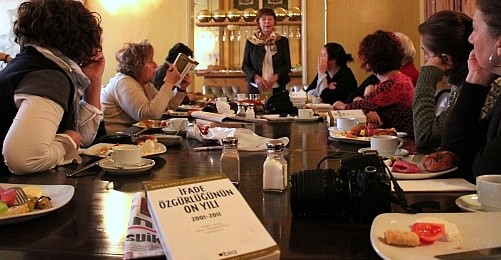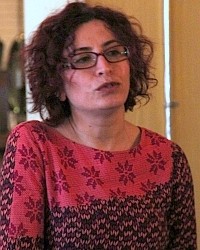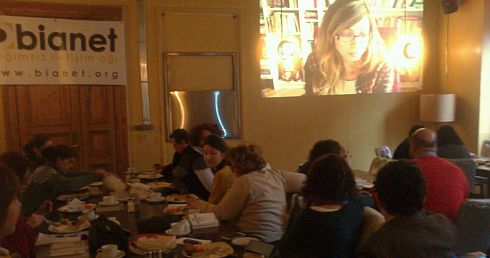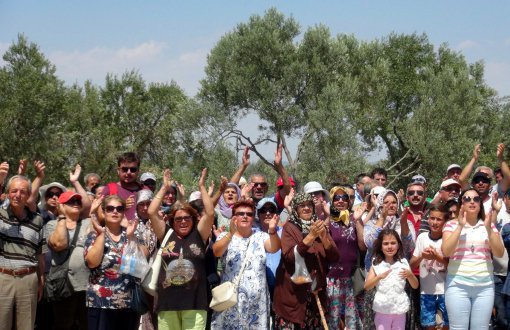bianet's Latest Book Promoted


10 Years in Freedom of Expression, the fifteenth book released by bianet's IPS Foundation, has been introduced this morning to a group of academicians, authors, journalists and NGO representatives in Istanbul.
Addressing the crowd in conference room in downtown Istanbul, bianet project advisor Nadire Mater reminded that the book included expression freedom limitations during the period of 9/11, as well as AKP government's new practices.
"In a way, the past decade marked as a period where borders of freedom expression have been redrawn and re-narrowed at the same time," Mater said. "For the past 30 years, Turkish state is having a war with Kurdish people. Kurdish media has always been on the spot. There are still 67 jailed journalists in Turkey where the majority of them are Kurdish."
10 Years in Freedom of Expression is a compilation of bianet's media surveys and freedom expression reports between 2001 and 2011, co-authored by Emek Çaylı and Gülsüm Depeli from Hacettepe University Communications Department with the contributions of Fikret İlkiz and Erol Önderoğlu.
The book focuses on the factors against freedom expression in the past decade in Turkey, as well as the struggles of activists who thrived to challenge the ongoing status quo.
While the book's main argument swirled around the fact that limitations on the freedom expression still remained in Turkey, it also encompassed hundreds of reports on murders, attacks, threats, limitations, detentions, arrests, trials, TV-Radio council penalties, ECHR applications and documents released by international press freedom organizations that criticized the situation in Turkey.
Depeli: We tried to create an alternative memory

Assistant professor Gülsüm Depeli, co-author of the book, said the book still harbored a sense of hope even though several facts on the current practice of freedom expression in Turkey were enough to draw a pessimist picture.
"For the past decade, journalists in Turkey always suffered oppression from a "hysterical" state that constantly passed new legislations to endure the oppressive mechanisms," Depeli said.
She emphasized that several international press organizations "necessarily" kept a watchful eye on Turkey due to limitations on the press.
"When you asked the government officials, they are going to draw you an entirely different picture," Depeli continued, ”But in fact the government did not create a memory of 'democracy' as it claimed. We aimed to create a an alternative memory against the government's memory theft."
Çaylı: Limitations are not only for journalists

Assistant professor Emek Çaylı, other co-author of the book, joined the meeting through Skype due to her injury.
"We have witnessed 3 journalist assassination in the past decade," Çaylı said. "Covering news out in the field, investigating corruptions made them a target. But the book also talked about expression limitations on authors artists, politicians, youtube bans and TV-Radio council penalties and banned books."
Along with other bianet publications on woman and children focused journalism, the book has been distributed to several government and non-government organizations in Turkey. (NV)
Engineers Inspect Hasankeyf: Caves Damaged

Sexual, Physical Violence Against People With Disabilities Increase

Villagers on Watch in Çanakkale Against Geothermal Power Plants

Judge Replaced Ahead of Summary Judgement in Soma Trial

Most Miner Families Withdraw Complaint in Occupational Homicide Trial in Şirvan





